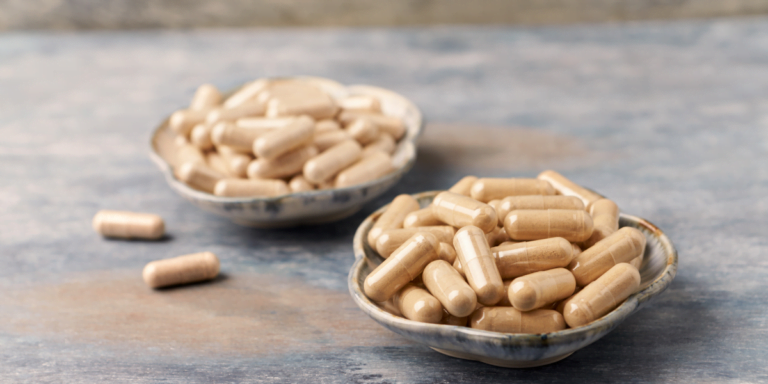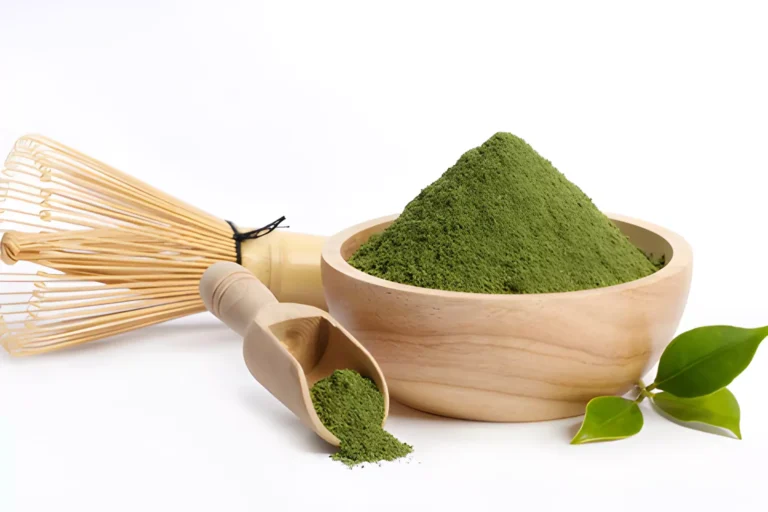How Long Does Ashwagandha Take to Work? Explained
If you are looking for a natural way to improve your health and well-being, you may have heard of ashwagandha. Ashwagandha is an ancient herb used for centuries in Ayurvedic medicine, India’s traditional system of healing. Ashwagandha is known for its adaptogenic properties, which can help your body cope with stress and balance your hormones. Ashwagandha has also been shown to have various benefits, such as enhancing mood, memory, sleep, sexual function, and athletic performance.
But how long does ashwagandha take to work? How soon can you expect to see results from taking this powerful herb? And what factors can affect the time it takes for ashwagandha to work? In this blog post, we will answer these questions and explain the timeline for noticing the benefits of ashwagandha.
How does ashwagandha work?
Ashwagandha influences various systems and processes in your body, such as your nervous system, endocrine system, immune system, and metabolism. Ashwagandha contains a group of compounds called withanolides responsible for most of its effects. Withanolides can modulate the activity of certain neurotransmitters, hormones, enzymes, and cytokines, which regulate your mood, stress response, inflammation, cognition, and energy.
One of the main effects of ashwagandha is that it can lower your cortisol levels. Cortisol is a hormone that is released when you are under stress. Cortisol helps you deal with acute stressors, such as a physical threat or an emotional challenge. However, when exposed to chronic or excessive stress, cortisol can become too high and cause problems. High cortisol levels can impair your immune system, increase your blood pressure and blood sugar, disrupt your sleep cycle, reduce your sex drive, and affect your mood and memory.
Ashwagandha can help reduce cortisol levels by enhancing the activity of GABA receptors in your brain. GABA is a neurotransmitter that inhibits the activity of other neurons and helps calm down your nervous system. By increasing GABA activity, ashwagandha can help you feel more relaxed and less anxious. This can also improve your sleep quality and duration.
Another effect of ashwagandha is that it can increase your testosterone levels. Testosterone is a hormone that is important for both men and women. Testosterone affects your muscle mass and strength, your bone density, your libido and sexual function, your mood and confidence, and your cognitive abilities. Testosterone levels tend to decline with age and with stress.
Ashwagandha can help boost testosterone levels by stimulating the production of luteinizing hormone (LH) in your pituitary gland. LH is a hormone that signals your testes or ovaries to produce more testosterone. Ashwagandha can also increase the availability of free testosterone in your blood by reducing the binding of sex hormone-binding globulin (SHBG) to testosterone. SHBG is a protein that binds to testosterone and makes it less active.
How long does it take for ashwagandha to work?
The time it takes for ashwagandha to work can vary depending on the individual and the condition being treated. This question has no definitive answer, as different people may respond differently to ashwagandha. However, based on the available research and anecdotal reports, we can provide a general timeline for noticing the benefits of ashwagandha.
What factors can affect the time it takes for ashwagandha to work?
The timeline for noticing the benefits of ashwagandha is not fixed and can vary depending on several factors, such as:
- The dosage of ashwagandha: The dosage of ashwagandha can affect the time it takes for it to work. Generally, higher dosages may produce faster and more noticeable effects than lower dosages. However, this does not mean you should take more ashwagandha than recommended. The optimal ashwagandha dosage may vary depending on age, weight, health condition, and desired effects. However, a standard dosage range is between 300 to 600 mg daily, divided into two or three doses. You should start with a low dose and gradually increase it until you find the best one.
- The quality of the ashwagandha supplement: The quality of the ashwagandha supplement can also affect the time it takes for it to work. Not all ashwagandha supplements are created equal. Some may contain low-quality or contaminated ingredients or have low concentrations of withanolides, the active compounds in ashwagandha. To ensure that you get the best results from ashwagandha, you should choose a high-quality supplement that contains standardized extracts of withanolides. It would be best if you also looked for a supplement that is certified organic, non-GMO, vegan, gluten-free, and free of additives and fillers.
- The individual’s overall health: The individual’s overall health can also influence the time it takes for ashwagandha to work. It may take longer for ashwagandha to work if you have any underlying health conditions or imbalances, such as chronic stress, hormonal issues, inflammation, or nutrient deficiencies. This is because ashwagandha may need to address these issues before producing its full benefits. To improve your overall health and enhance the effects of ashwagandha, you should also follow a healthy lifestyle that includes a balanced diet, regular exercise, adequate sleep, and stress management.
- The individual’s genetics: Their genetics can also affect the time for ashwagandha to work. Some people may have genetic variations affecting their metabolizing and responding to ashwagandha. For example, some people may have lower levels of enzymes that break down withanolides in their liver, which may result in higher levels of withanolides in their blood. This may make them more sensitive to the effects of ashwagandha and experience faster results. On the other hand, some people may have higher levels of enzymes that break down withanolides in their liver, which may result in lower levels of withanolides in their blood. This may make them less sensitive to the effects of ashwagandha and experience slower results.
How do we maximize the benefits of ashwagandha?
To maximize the benefits of ashwagandha and shorten the time it takes for it to work, you should follow these tips:
- Take ashwagandha consistently: To get the most out of ashwagandha, you should take it consistently and regularly. Ashwagandha is not a quick fix that will work overnight. It takes time for ashwagandha to build up in your system and produce its effects. Therefore, you should not skip doses or stop taking it abruptly. You should take ashwagandha daily for at least 2-3 months to see optimal results.
- Take ashwagandha on an empty stomach: To increase the absorption and bioavailability of ashwagandha, you should take it on an empty stomach. You should take it at least 30 minutes before or 2 hours after a meal. This way, you can avoid any interference from food or other substances that may reduce the effectiveness of ashwagandha.
- Combine ashwagandha with other herbs and supplements: To enhance the benefits of ashwagandha, you can also combine it with other herbs and supplements with similar or complementary effects. For example, you can take ashwagandha with Rhodiola, another adaptogenic herb that can boost your energy, mood, and cognition. You can also take ashwagandha with turmeric, a powerful anti-inflammatory spice that can support your immune system, brain health, and joint health. You can also take ashwagandha with ginseng, a stimulating herb that can improve your stamina, sexual function, and mental performance.
What are the potential side effects of ashwagandha?
Ashwagandha is generally considered safe and well-tolerated when taken in moderate doses and for short periods. However, there are some possible side effects that you should be aware of, such as:
- Mild stomach upset: Ashwagandha may cause digestive discomfort, such as nausea, diarrhea, or bloating, especially if you take it on an empty stomach or in high doses. You should start with a low dose and gradually increase it to avoid this. You can also take ashwagandha with food or water to reduce the irritation.
- Dry mouth: Ashwagandha may cause your mouth to feel dry or thirsty, as it can reduce saliva production. To prevent this, you should drink plenty of water and stay hydrated. You can also chew sugar-free gum or suck on hard candy to stimulate saliva flow.
- Fatigue: Ashwagandha may cause you to feel tired or sleepy, especially if you take it in the evening or before bed. This is because ashwagandha can lower your cortisol levels and increase your GABA activity, which can induce relaxation and drowsiness. To avoid this, you should not take ashwagandha if you need to be alert or perform tasks that require concentration. You should also avoid driving or operating machinery after taking ashwagandha.
- Dizziness: Ashwagandha may cause you to feel dizzy or lightheaded, especially if you take it in high doses or with other medications that lower your blood pressure. This is because ashwagandha can dilate your blood vessels and lower your blood pressure, affecting your balance and coordination. You should monitor your blood pressure and adjust your dosage accordingly to prevent this. You should also stand up slowly and avoid sudden movements after taking ashwagandha.
Conclusion
To conclude, ashwagandha is a natural herb that can help you improve your health and well-being in many ways, but it takes time to work. The time it takes for ashwagandha to work can vary depending on the individual and the condition being treated, as well as the user’s dosage, quality, health, and genetics. To get the best results from ashwagandha, you should take it consistently, on an empty stomach, and with other herbs and supplements. Ashwagandha is generally safe and well-tolerated, but you should consult your doctor if you have any medical conditions or medications before taking it.




